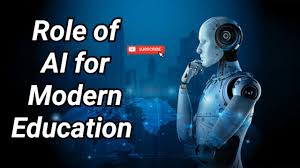Artificial Intelligence (AI) is transforming the education sector, making learning more personalized, efficient, and accessible. From intelligent tutoring systems to automated grading and virtual classrooms, AI is reshaping how students learn and teachers instruct.
Personalized Learning AI helps tailor education to individual student needs. Adaptive learning platforms analyze student performance and adjust content accordingly, ensuring each learner progresses at their own pace. This technology helps students grasp difficult concepts more effectively.
Results
#1. What is your highest completed level of education?
#2. What is your preferred work location?
#3. What is your current employment status?
#4. What type of work are you most interested in?
#5. Which continent are you currently living in?
#6. What is your gender?
Smart Tutoring Systems AI-powered tutors provide instant feedback and support to students. These systems use natural language processing to answer questions, explain concepts, and track student progress. They offer assistance outside regular class hours, helping students study independently.
Automated Grading and Assessment AI can automate grading for multiple-choice tests, written essays, and even coding assignments. This reduces the workload on teachers, allowing them to focus more on student engagement and lesson planning.
Virtual Classrooms and AI Assistants AI enhances online learning through virtual classrooms that simulate real-life learning environments. AI-powered assistants help schedule lessons, provide reminders, and answer student inquiries, improving the overall learning experience.
🎓 Must Read
Enhancing Accessibility in Education AI-driven tools, such as speech-to-text and text-to-speech applications, help students with disabilities access learning materials more easily. AI can also translate languages, making education more inclusive for non-native speakers.
Early Identification of Learning Gaps AI can analyze student data to identify learning gaps and suggest interventions. Teachers can use this insight to offer additional support where needed, improving overall student performance.
Challenges of AI in Education Despite its benefits, AI in education comes with challenges, such as data privacy concerns, high implementation costs, and the need for teacher training to use AI effectively. Addressing these issues is crucial for maximizing AI’s potential.
Conclusion AI is revolutionizing education by making learning more personalized, accessible, and efficient. While challenges exist, the continued advancement of AI technologies promises a brighter future for students and educators alike. Embracing AI in education will lead to more innovative and effective teaching methods.









